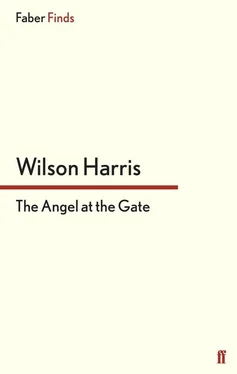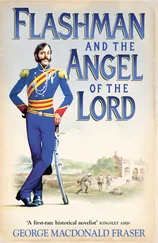“Sebastian, what have you been up to?” Stella said. “It’s been an age. Look! It’s time we sorted out this dole business. I’m not even sure how much you are getting. You’ve been pinching from it, Sebastian. I know it’s hell to be out of work. Do you realize it’s Mary’s salary that’s been seeing us through? Thank god for Father Marsden.”
“I can spend my money as I like,” Sebastian grumbled.
“Your money? What about John? What about food, rent, electricity, gas?”
“We’ll make out,” said Sebastian. He suddenly had an inspiration, a way of making his debts look like high, devilish cunning assets. “I’m writing a play for White City.” It was a euphemistic confession to himself that though he had cancelled his third script he would have to find money and pay something next time to secure a body of speed. Stella was deceived, as she often was, by the faces he made. She opened her eyes wide. “White City television studios? Have you really written a play, Sebastian?” Then she laughed, it was quite absurd. Of course, on the other hand, all he needed was to string a few words together. The camera would do the rest. Still, even so, she was sceptical. “What nonsense, Sebastian.” She was staring at him hard. “I see,” she said thoughtfully. “Someone’s been approaching you to appear on a programme about drugs. I know they’ve been talking to addicts and that they appear to pay good money to the heroin people. I’m not sure it’s your scene, Sebastian. Speed’s nothing at all, nothing at all, compared to heroin.”
Sebastian was surprised by the turn of events. He felt he must build on the immediate lie, erect a higher and higher pole on which to dance even if it lasted but for a moment. “My scene does interest them. It does. It does.” But, even as he dwelt on the notion, his mind went blank. The truth was he had been driven by her (the bitch!) into an area that would require of him a confession of obliviousness to the torment he endured. Without that obliviousness how could he endure the invisible spectres that waved at him?
“Why should I tell them anything? Why should I say how I feel or don’t feel?” The silent question about oblivious mask seemed to pop into his mind from nowhere and to make him more unhappily conscious of Stella’s uncanny capacity to unsettle him, when he was high, to unsettle the foundations of the coffin that ran far deeper than his perception.
“I shan’t go through with it, that’s all. I won’t appear. They won’t pick my brains.”
“But why not? You needn’t worry,” said Stella. “I shall tell you what to say.”
“You? Tell me what to say?”
“All I mean is I could work out something for you. You won’t have too much — to say too much.”
Sebastian stared at her with rising anger at his risen lie beyond which it seemed now he could not escape. He felt, given a chance, he could rip … Dolphin Street ripper. That was the way to keep a lie solid. When did he and Stella ever say too much to each other? They tended, on the whole, to speak in monosyllabic bursts and utterances; except on those occasions when the need for blood music became so intense it created excited quarrels, terror and loathing, fascinations with horror. And even then those fascinations tended to fade like a forgotten dream the next morning, the phantom, warring cities they had erected tended to fall.
“You’re a bitch, Stella,” said Sebastian now. He’d show her he could talk. “One day you’ll cave in … you’ll write a letter….” It was a random shot. Perhaps he had had a glimmering sensation of the future.
“What letter?” Stella was hurt and puzzled.
Sebastian ignored this. “Everything has to be your idea. You invent even the lies I tell. You feed me cues, you, Mary and John. I’m your fucking nobody genius. Even this interview (or would it be an inquisition?) at White City, even now…” He didn’t know how to confess at last that there was to be no television programme, that he had been lying, not she. He had been building heroic (not heroin) playwright into himself.
Double-edged play indeed, play that accumulated into money masks he owed his drugs’ middleman; but play also that signified the abstract programme of a bitch (that was how he now saw Stella’s cue) — a cue all the more needling in that it constituted the pole he wished to climb from which to wave to a million viewers from the coffined, brilliant box that glowed like live ashes in their sitting rooms.
What was sobering and frightening, Stella felt, was how the trivialities of their lives, the quarrels about nothing, could breed an enormity of double-edged play, Sebastian’s actual money debts, and their mutual debt to the cliff or precipice of inner truth to which they clung for dear life. Stella knew she could slip if she were not careful, that Sebastian could wear her to a shred.
Stella felt suddenly, irrationally, worn to a shred. Perhaps it was true that she tended to stitch words into his mouth and to treat him like a failed coat. Her attitude aroused him to retaliate, to feign a desire to see her perish. How — Stella wondered — did all this reflect on the lie he had told? Was it not, however unwittingly, as much her lie as his?
Here was stage indeed, White City studio, in which she could become his interrogator, and also interrogate herself, implicitly interrogate Mary.
The question they needed to ask themselves was this: what was the difference between lies and truth?
Some lies were called white lies but others such as Sebastian’s were punted around like a ball or seized upon to ease the unbearable pressure of truth that the seed of genius and responsibility resided — however rotten its state — in every man, every woman, every child; seed of dawning consciousness of plagued humanity, seed of unique perception of birth and death — a perception that no paradisean animal possessed prior to Man. For the first time, perhaps, who knows, in the entire universe, the lie had become a little death that affected the body of the animal kingdom in the human imagination, human kingdom. And, as a consequence, truth (however faint) was ubiquitous; it resided in the heights and in the depths, in flower and in beast, in perceived cradle as much as in perceived coffin — in awareness of little births, little deaths in order to usher in the infinite metaphysic that all are born to die several deaths, to endure several lies, if one is to move by degrees into genius of mutual responsibility, shared responsibility for the truth, shared capacity to judge and to be judged for the lives one lives, the way one treats everything. That judgement was intrinsic to genius and to the terrifying reality of love.
Stella was almost lost in judgement of herself. Her interrogation was fading, the lights of the studio went down and Sebastian’s voice came to her from within the hollow tree of himself. It was as if he had retreated into perceived coffin or television box and summoned her to follow him. She hesitated. He was humming a tune. Stella was startled almost out of her wits at the consequences of the lie she had unwittingly put into his mouth. It had led to this! It had led to a tune that riveted her backwards in time, into childhood associations. The voice of the humming dead! Her mother’s voice had tended to be deep, contralto, and in the depths of Sebastian’s tree, the depths of the studio, it seemed to rumble anew out of the past.
Her mother’s voice (she could scarcely believe it was so close at hand in coffin or studio) was Mary’s mother’s voice. Why did she have to say that now? Ah yes, said Stella, I am a mask Mary wears, a way of coping with truth. We are each other’s little deaths, little births. We cling to sarcophagus-globe and to universal cradle.
Читать дальше












